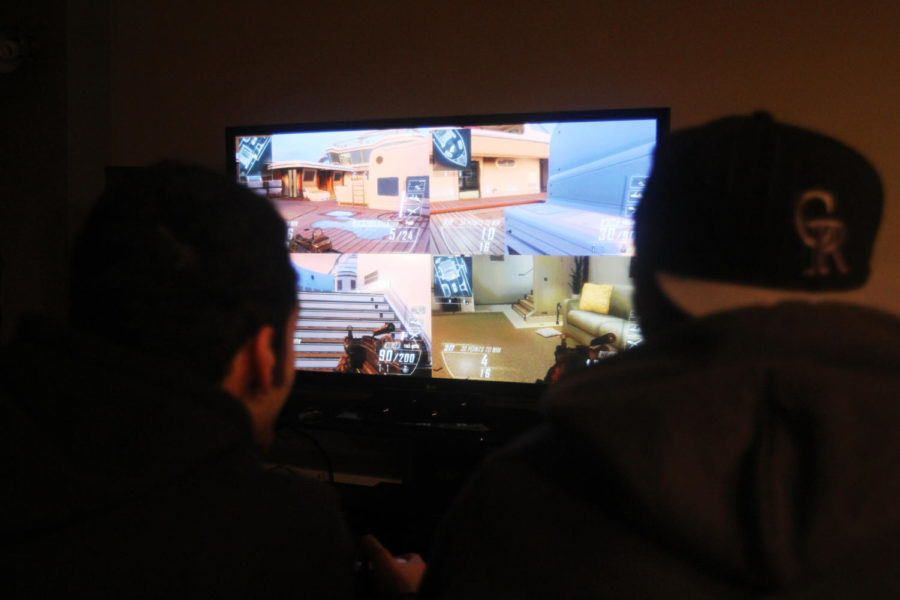New study shows parent influence over children’s violent video game play
Photo illustration: Suhaib Tawil/Iowa State Daily
Many studies have been done — and continue to be done — to discover whether violent simulation video games have effects on their users.
November 2, 2015
A study co-authored by an ISU associate dean found that violent video game play by children may be a product of their parents.
A consumer research study concerning how parenting styles influence their children’s violent video game play was performed recently at Iowa State.
The study was led by Interim Associate Dean of Marketing Russell Laczniak and three staff members of other universities: Doug Walker of Kansas State University, Deanne Brocato of Utah State University and Les Carlson of the University of Nebraska.
The initial idea came from Brocato and Laczniak, who attended a workshop held by the Psychology Department on the impact of media violence on society. Brocato and Laczniak were interested in the children within society.
“We saw that there seemed to be some, at least what we thought to be, harmful effects,” Laczniak said in regard to media violence.
Brocato and Laczniak spoke with Carlson, with whom Laczniak had previously researched parental style and its influence on children’s consumption of violent media.
For the study, a focus was placed on one form of consumption: the consumption of violent video games.
Once Brocato and Laczniak joined the project, they sought help from Walker with the data analysis.
Over 200 families volunteered in the study. By working with a research firm that is able to reach over 10,000 families, they were able to narrow down their search to families that had children between the ages of 8 and 12.
The style of parenting in the families was determined by an Internet questionnaire. The questions were not upfront, but the way the parents answered determined general tendencies.
The study found that parents restrictive toward their children, as well as parents who were open in communication with their children played less video games.
Kyle Ferguson, freshman in software engineering, found the correlation to be interesting. He would describe his parents as most like the open communication type.
“I play violent video games, but it’s not what I look for in a video game,” Ferguson said.
Something that surprised the co-authors was the link between overprotective parents and their children playing more violent video games. Their parenting style backfires in preventing their children from playing violent video games, although the co-authors remain unsure as to why that would be.
“We did some additional analysis to try and figure that out,” Laczniak said of their findings. “The effect is particularly pronounced for first-born boys, more so than girls.”
This is perhaps because as parents become more protective their children may rely more on their peers as influencers. The findings may prompt a future study, Laczniak said.
One thing they do know is that first-born boys are most susceptive to peer-influence compared with their younger siblings.
The study didn’t go into what could become of children who often play violent video games, but a previous study co-authored by Craig Anderson, distinguished professor of psychology, looked at the relationship between kids who play violent video games and problematic behaviors.
The study was a meta-analysis of over 300 different studies concerning the topic. The meta-analysis found there is a tendency for children who often play violent video games to engage in problematic behaviors. An example of a problematic behavior would be getting into a fight at school.
While not all children who play violent video games engage in problematic behavior, there is a tendency for the children to have a build up of aggressive cognitions.

















